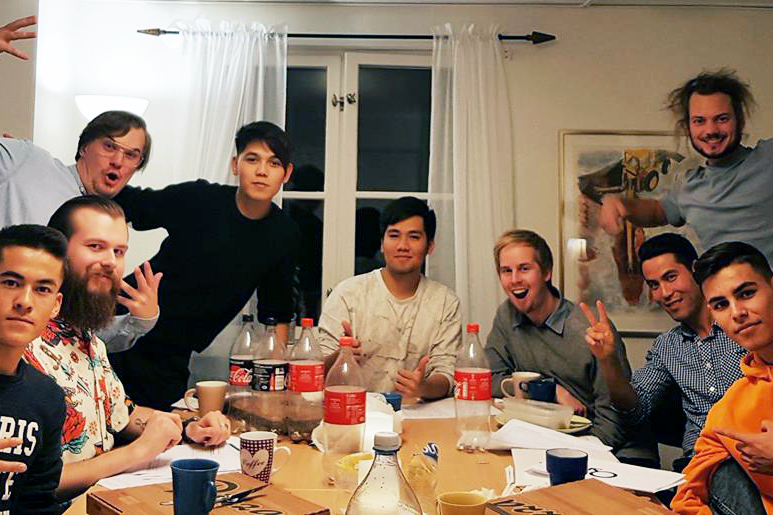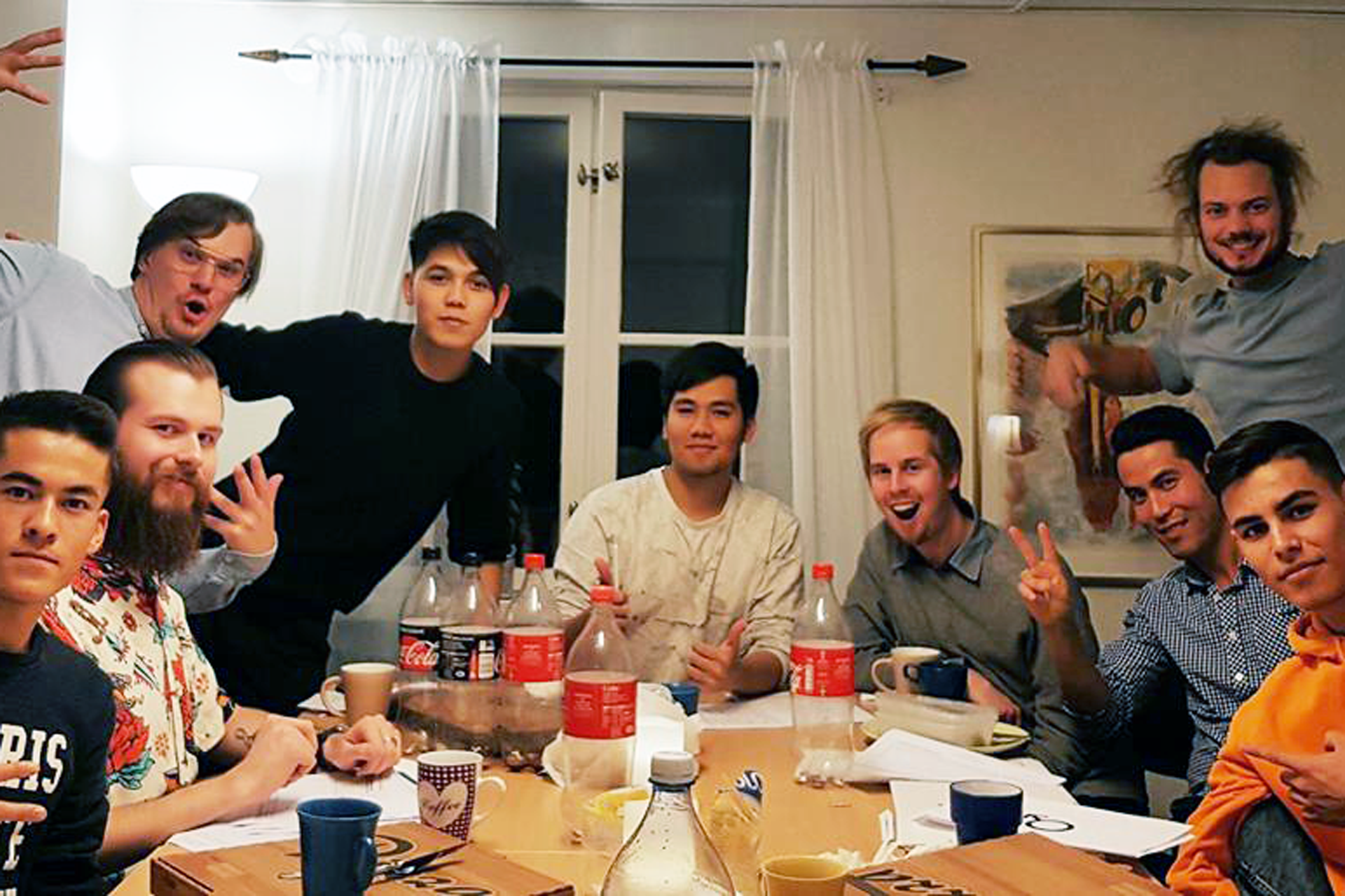Unaccompanied young men and women were able to meet Swedish youths and eat dinner together. Their need to find Swedish friends, and to hear how Swedish youths think, was great. To meet is to integrate.

ABF Östergötland
Norrköping, Sweden
Purpose of the method
The aim of the project was to fullfil the wish of unaccompanied young people to make Swedish friends and to learn what their Swedish peers think about various relevant issues.
Background
The dinners for young women and men were activities included in the project Social Support for Unaccompanied Young Migrants. ABF Östergötland launched the project in Norrköping in autumn 2017. The mission was to support young unaccompanied refugees between the ages of 16 and 21 in order to strengthen their ability to establish themselves in society, by improving their language skills and increasing their contact with the majority community. This is important as these young people lose access to their professional support network on reaching 21 years of age. Once an unaccompanied minor reaches 18 years of age and has been granted a residence permit, they must move out of their HVB residential care home, whereupon they lose contact with both ‘their’ care home staff and the guardian appointed to represent their interests. The project was intended to act as a bridge between the HVB home and accommodation of their own. The project commenced with a questionnaire to identify needs and opportunities, ABF then interviewed both unaccompanied minors and the management and staff of HVB homes.
Norrköping Municipality applied and was granted something known as § 37a funding from the County Administrative Board of Östergötland. One of the reasons that Norrköping Municipality tasked ABF with managing the project was that the ABF project manager had previously worked with unaccompanied minors. ABF had also arranged four summer schools and an introductory course for newly arrived unaccompanied young people. This introduction course was held in ABF’s Swedish-language and social-studies circles as a preliminary activity prior to being accepted into the municipality’s language introduction course. ABF therefore had solid experience of working with the target group, as well as close contacts with the community of unaccompanied young migrants in Norrköping.
The Social Support for Unaccompanied Young Migrants project ran for three terms. During the first term, the focus was on reading homework, leisure activities, discussion groups, community information, study visits and lectures. The second term saw a broadening of activities to include writing CVs and cover letters and information on applying for summer jobs.
Prior to the third term, the topic had been raised that the newly arrived young migrants were keen to meet their Swedish peers, given that, even if they had plenty of friends, few of them were born in Sweden. They wanted to make Swedish friends and learn what Swedish youths thought about issues that affected them. It was out of this desire that the youth dinner groups began.
Description of method
The project manager contacted two local associations that ABF worked with in Norrköping: MÄN and Tjejjouren. Together with them, the design of the dinner meetings was created with an emphasis on creating a rewarding and safe environment. ABF also wanted to ensure a place for the discussion of humanistic values, gender equality, sex and cohabitation, rights and responsibilities and social norms. Based on the dialogue with the associations, it was decided that ABF should invite one group of young men and one of young women.
MÄN and Tjejjouren, who were now partners in the project, helped to recruit youths from a Swedish background via their networks.
The two groups met for three hours every other week during autumn 2018. Each group was composed of five unaccompanied young migrants and five Swedish youths.
It was also decided within the project that all dinner meetings would be free of charge to participants in order to ensure that lack of money did not deter the young people from attending.
Each dinner group had two leaders so that conversation could take place in smaller groups and to provide security for both participants and leaders. It was also important to have more than one leader in order to listen and respond to stories and ideas from participants, who are sometimes burdened by terrible experiences.
Every meeting commenced with dinner ordered from local restaurants by the group leader. During dinner, the young people addressed various themes, leading to many lively discussions in both groups.
Each group had a closed Facebook group in which the young people signed up and ordered food.
ABF conducted ongoing evaluations of needs and requirements for best supporting the young people.
Results
On the conclusion of the project, the participants were asked to submit their own written reflections. The responses were very positive. They found the experience extremely enjoyable and interesting. Many would have liked to see the project continue. The young people made new contacts and learned more about each other’s cultures and attitudes. Some participants felt that more activities would have increased the sense of community among the members of the group.
The projected ended in December 2018. It was a relatively expensive project given that food was provided free to the participants and two leaders took part in each dinner group.
Experiences
The dinners met a great need; the young people were keen to meet, talk and reflect with one another. In a society where information and impressions are constantly washing over us and we are under constant pressure to achieve, it is important to simply sit and socialize. This is especially important for unaccompanied young migrants who lack adult contacts and their families.
It is also important for Swedish youths to have the opportunity to meet young people from other countries and with different experiences in order to gain a greater understanding of others, thus reducing both racism and exclusion. In the final analysis, our commonalities outweigh our differences and meetings like these are vitally important to creating a better social climate.
Study materials
MÄN and Tjejjouren provided their own materials, including #Killsnack – Feministisk samtalsgrupp för män (#Guy talk: Feminist Discussion Groups for Men).
Collaboration
- County Administrative Board of Östergötland
- Norrköping Municipality
- MÄN
- Tjejjouren
Resources and funding
- 37a funding from the County Administrative Board of Östergötland via Norrköping Municipality.
Contact
If you have any questions about the method, please contact ABF Östergötland.
